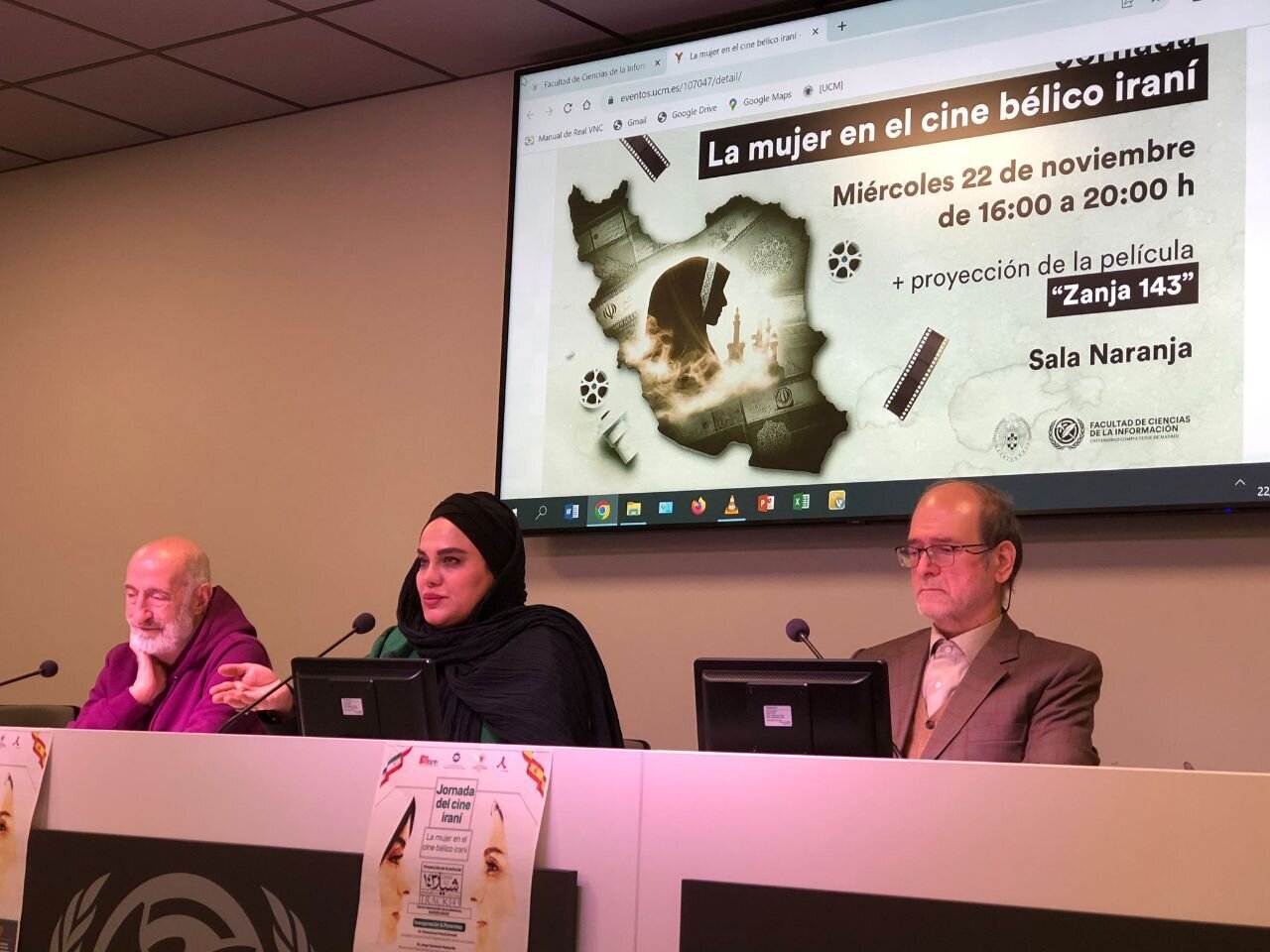“Women in Iranian War Movies” conference held at Complutense University of Madrid

TEHRAN-The conference “Women in Iranian War Movies” was held at the Complutense University of Madrid (UCM) on November 22.
Organized by the Embassy of Iran in Spain in collaboration with the Complutense University of Madrid, the event hosted a number of Spanish and Iranian cultural officials and university professors, who discussed about the war movies in Iranian cinema and the role of women in them, in the presence of a group of the university students as well as fans of Iran cinema in Madrid, IRNA reported on Friday.
The celebrated Iranian director Narges Abyar was also present at the event. Screening of her movie “Track 143” was part of the program, which was followed by her speech about the film, war, and cinema of Iran.
The 2013 war/drama “Track 143” delves into the theme of maternal sacrifice during the 1980-1988 Iran-Iraq war, also known as the Sacred Defense. The story revolves around Olfat, a mother anxiously awaiting the return of her son who has gone missing in action.
Unlike traditional war films with grand battle scenes, this movie deliberately avoids depicting the war directly. Instead, the audience shares in the mother's experience by hearing war news through a radio she carries on her waist, providing a firsthand account of the events happening on the warfront. This unique perspective offers a more intimate and personal exploration of the emotional toll and uncertainty faced by families affected by war.
At the beginning of the meeting, Jorge Clemente Mediavilla, the head of the Faculty of Communication at the UCM, emphasized that Iranian cinema in the past decades has succeeded in starting a new trend in the world cinema, the result of which has been the emergence of a human perspective and special attention to human relationships.
He also expressed hope that such meetings will continue in the coming years with the presence of other figures of Iranian cinema, so that the academic and elite inf Spain will get more familiar with the new trend created by Iranian cinema.
After the screening of her movie, Abyar said: “Our people were engaged in the war for eight years; a war that we did not initiate and the enemy imposed on us. I tried to show the harsh and hateful face of war in my films, without involving myself in huge war scenes, in fact, I am more interested in the representation of the consequences of war than what happens during the war and in the battle fields”.
Also speaking at the event was Francisco García García, professor of cinema studies at the UCM, praised Abyar’s film and said: “This movie is about the effects of war. What we need to see and think about is the consequences of wars. When we see such films, we ask ourselves why? Why all this suffering?”
He also referred to some technical issues in the film, including the appropriate distribution of story events throughout the script, as well as the director's choice in the form, light and color of the scenes, and finally praised the poetic narrative of the movie.
SS/SAB
Leave a Comment